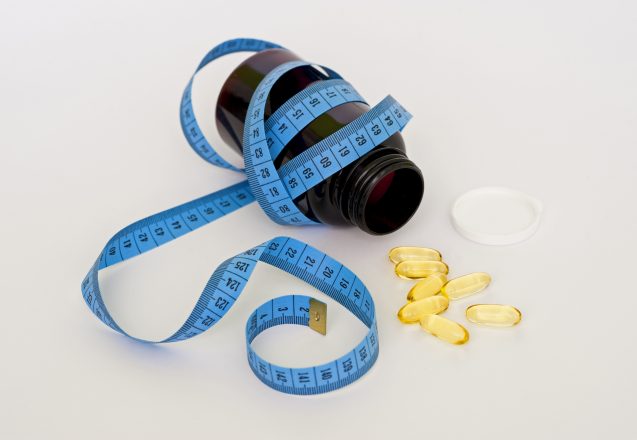Is Keto As Good As People Say?
 If you’re considering a Keto diet, it’s probably because you’ve heard that it can help you lose weight. While healthy eating is the best way to lose weight, without actually dieting, a keto diet has some benefits. It consists of lowering the amount of calories you eat from carbohydrates to approximately 5% and increasing the amount calories of fat to approximately 70% with the last 25% coming from protein. This is just one version. Other versions include doing a cycle of keto followed by a cycle of a high carb diet, increasing the protein intake and reducing the fat intake or slightly increasing the carb intake.
If you’re considering a Keto diet, it’s probably because you’ve heard that it can help you lose weight. While healthy eating is the best way to lose weight, without actually dieting, a keto diet has some benefits. It consists of lowering the amount of calories you eat from carbohydrates to approximately 5% and increasing the amount calories of fat to approximately 70% with the last 25% coming from protein. This is just one version. Other versions include doing a cycle of keto followed by a cycle of a high carb diet, increasing the protein intake and reducing the fat intake or slightly increasing the carb intake.
The key is the type of carbs you eat.
When you think of carbs, you probably think of cake, cereal, white bread and pasta. Not all carbs are bad or high in calories. Vegetables are in the carbohydrate group, so is quinoa, dairy and nuts. However, vegetables, such as broccoli, lettuce and green beans are low in calories, so you can eat healthy and still be on a keto diet. What the diet limits is underground or root vegetables and refined carbohydrates. When you think about it, cutting out added sugar and refined carbs is the first step to a healthy diet.
What foods are on a keto diet?
Avocados may be a fruit—even though most people think of them as a vegetable—but they’re high in fat and count toward your fat intake. Fatty fish, eggs, butter, nuts, seeds, low carbohydrate vegetables and meat are included in a keto diet. Since 70% of the calories come from fat, the high fat intake may not be a good habit to form. Most of the diet includes healthy foods, which is a good habit to develop. While eating most types of fat is encouraged, trans fats are not allowed.
If a keto diet sounds too good to be true, you should know there are dangers.
If you take medication for diabetes, always talk to your health care professional. In fact, do that if you’re making any dramatic changes to your diet. Try to avoid too much saturated fat, since it isn’t heart healthy. Keto diets can also cause constipation, kidney stones, low blood pressure, nutritional deficiencies and increase your risk of heart disease. If you have a liver disease, a thyroid condition, or problems with your gallbladder or pancreas, you should avoid a keto diet for the sake of safety.
- It can be hard to stick with a keto diet, especially if you’re constantly on the run and eat out frequently, where you don’t control all the ingredients in the food.
- Be aware there’s a potential for low blood sugar, which is important for diabetics to remember, so they can monitor medication. It does offer benefits of lowering blood pressure, increasing energy and providing quicker weight loss.
- The keto diet was originally used to help control epilepsy. In the 1920s, they found that it produced similar benefits as fasting, which was used up to that point.
- Some people experience what is called the “keto flu.” It causes an upset stomach, can cause low energy, mood swings and even dizziness. It takes a while for the body to adjust to the change in diet.
For more information, contact us today at Revolution Training



 Most people agree that eating a healthy breakfast is important. However, at Revolution Training in Stamford, CT, we have healthy people that just drink a cup of coffee to start their day and don’t begin meals until noon. These people focus on healthy eating, but basically eat their first meal later and their last meal of the day earlier. They follow of a schedule of intermittent fasting, which is also proven to be healthy, too. There’s no one right answer and reasons that both eating styles are healthy.
Most people agree that eating a healthy breakfast is important. However, at Revolution Training in Stamford, CT, we have healthy people that just drink a cup of coffee to start their day and don’t begin meals until noon. These people focus on healthy eating, but basically eat their first meal later and their last meal of the day earlier. They follow of a schedule of intermittent fasting, which is also proven to be healthy, too. There’s no one right answer and reasons that both eating styles are healthy.
 At Revolution Training in Stamford, CT, we put you and your goals first. We emphasize that in order to succeed, you have to stick to your fitness goal and I’m proud to say that our clients do. Their dedication inspires me. One of the reasons is their goals are well-defined. We help them narrow them down to an achievable goal that’s big enough that it’s exciting, but still within grasp. Sticking with a goal starts with identifying not only your goal, but what you’re truly capable of achieving. Being realistic, but your goals should be ambitious and excite you, too.
At Revolution Training in Stamford, CT, we put you and your goals first. We emphasize that in order to succeed, you have to stick to your fitness goal and I’m proud to say that our clients do. Their dedication inspires me. One of the reasons is their goals are well-defined. We help them narrow them down to an achievable goal that’s big enough that it’s exciting, but still within grasp. Sticking with a goal starts with identifying not only your goal, but what you’re truly capable of achieving. Being realistic, but your goals should be ambitious and excite you, too.
 What is clean eating and how is it beneficial? Clean eating is a way of selecting foods that are predominantly whole foods and less processed ones. There are variations to this that include excluding certain foods, like dairy, those with gluten and grains in general. Some people consider clean eating to be consuming raw food or strictly sticking with a vegan diet. The broader, more general definition is what is most accepted. While some definitions state there should be no processed food, processing includes cleaning, cutting, refrigeration and other preparation that should be encouraged, while highly processed food shouldn’t be.
What is clean eating and how is it beneficial? Clean eating is a way of selecting foods that are predominantly whole foods and less processed ones. There are variations to this that include excluding certain foods, like dairy, those with gluten and grains in general. Some people consider clean eating to be consuming raw food or strictly sticking with a vegan diet. The broader, more general definition is what is most accepted. While some definitions state there should be no processed food, processing includes cleaning, cutting, refrigeration and other preparation that should be encouraged, while highly processed food shouldn’t be.
 At Revolution Training in Stamford, CT, we focus on total body workouts and building strength, flexibility and endurance. However, you can’t always get to the gym, so any exercise is better than no exercise. In fact, there are simple options you can do anywhere and almost at any time of the day. It’s walking or running. Running helps burn off stress hormones, too, which makes it ideal when your day isn’t going the way you want, since running can lift your mood.
At Revolution Training in Stamford, CT, we focus on total body workouts and building strength, flexibility and endurance. However, you can’t always get to the gym, so any exercise is better than no exercise. In fact, there are simple options you can do anywhere and almost at any time of the day. It’s walking or running. Running helps burn off stress hormones, too, which makes it ideal when your day isn’t going the way you want, since running can lift your mood.
 There is a lot of controversy on whether taking vitamins will help you live longer and healthier. Health guru and pioneer fitness expert Jack LaLanne, who opened the first nationwide chain of fitness gyms and was on TV for 34 years touting everything fitness related, took 40 to 50 vitamins a day. While it seemed it worked, since he managed to towed 65 boats filled with 6,500-pounds of Louisiana Pacific wood pulp while handcuffed and shackled crossing Lake Ashinoko, near Tokyo, Japan, it also could have been the great shape he was in, his healthy diet and genetics. Do vitamins really help? The answer isn’t a simple “yes” or “no,” but more of a “sometimes yes” and “sometimes no.”
There is a lot of controversy on whether taking vitamins will help you live longer and healthier. Health guru and pioneer fitness expert Jack LaLanne, who opened the first nationwide chain of fitness gyms and was on TV for 34 years touting everything fitness related, took 40 to 50 vitamins a day. While it seemed it worked, since he managed to towed 65 boats filled with 6,500-pounds of Louisiana Pacific wood pulp while handcuffed and shackled crossing Lake Ashinoko, near Tokyo, Japan, it also could have been the great shape he was in, his healthy diet and genetics. Do vitamins really help? The answer isn’t a simple “yes” or “no,” but more of a “sometimes yes” and “sometimes no.”
 There’s no particular sweet spot when it comes to the number of times to workout a week that’s perfect for every individual. The Department of Health and Human Services—HHS—recommends at least 75 to 150 minutes of vigorous aerobic activity a week or 150 to 300 minutes of moderate aerobic activity. That means working out hard for a half hour between 2 ½ days a week and five. So what’s the best number of days? It all depends on what works for you.
There’s no particular sweet spot when it comes to the number of times to workout a week that’s perfect for every individual. The Department of Health and Human Services—HHS—recommends at least 75 to 150 minutes of vigorous aerobic activity a week or 150 to 300 minutes of moderate aerobic activity. That means working out hard for a half hour between 2 ½ days a week and five. So what’s the best number of days? It all depends on what works for you.
 We promote any type of exercise that a client likes and will do consistently at Revolution Training in Stamford, CT. You should look forward to working out and getting healthy exercise. We often get questions on what the best type of exercises are and one that come up frequently is whether running is good for cardio. There’s a lot of evidence that running, or any type of physical activity, is good for the heart. It lowers blood pressure, helps regulate sugar, lowers the risk of blood clots in vessels and arteries, increases circulation and regulates cholesterol levels. It also helps burns calories and aids in weight loss. However, there are some negatives.
We promote any type of exercise that a client likes and will do consistently at Revolution Training in Stamford, CT. You should look forward to working out and getting healthy exercise. We often get questions on what the best type of exercises are and one that come up frequently is whether running is good for cardio. There’s a lot of evidence that running, or any type of physical activity, is good for the heart. It lowers blood pressure, helps regulate sugar, lowers the risk of blood clots in vessels and arteries, increases circulation and regulates cholesterol levels. It also helps burns calories and aids in weight loss. However, there are some negatives.
 At Revolution Training in Stamford, CT, we focus on helping you reach your health goals. That’s our total focus. There are no right or wrong goals, but there are goals that are unrealistic. If you’re five foot two and wanted to be six foot six, that’s unrealistic. In fact, it’s more of a wish than a goal. Barring some miracle or new type of surgery, it isn’t going to happen. You won’t lose 100 pounds in a month under normal circumstances, either. So the first step is to define your goal and make sure it’s realistic. Unrealistic goals set you up for disappointment.
At Revolution Training in Stamford, CT, we focus on helping you reach your health goals. That’s our total focus. There are no right or wrong goals, but there are goals that are unrealistic. If you’re five foot two and wanted to be six foot six, that’s unrealistic. In fact, it’s more of a wish than a goal. Barring some miracle or new type of surgery, it isn’t going to happen. You won’t lose 100 pounds in a month under normal circumstances, either. So the first step is to define your goal and make sure it’s realistic. Unrealistic goals set you up for disappointment.